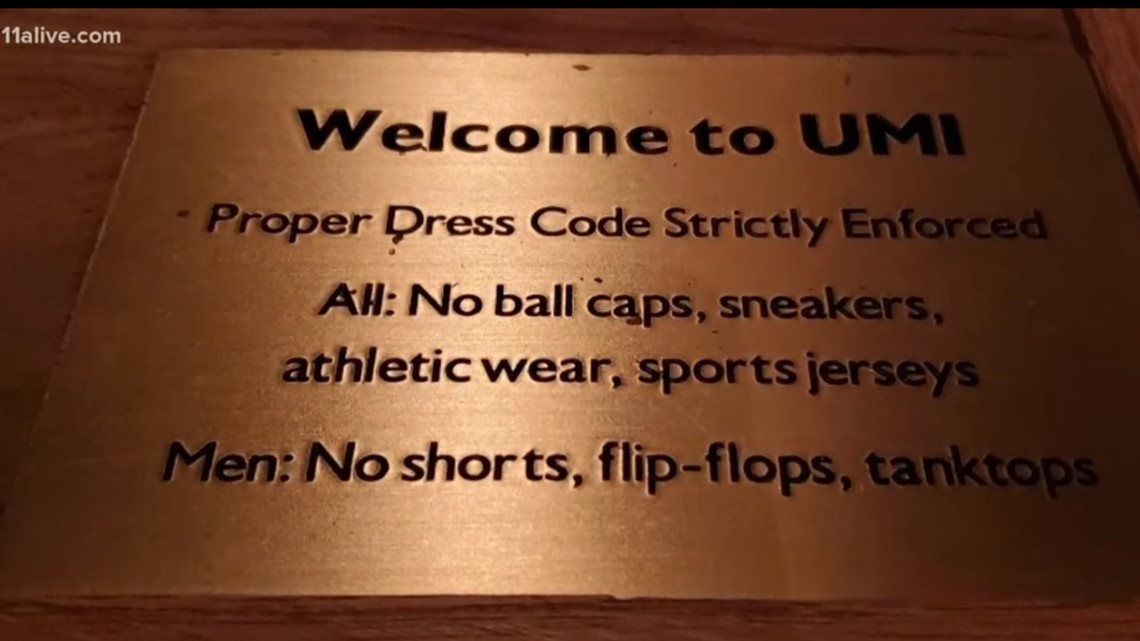Umi Sushi located in Atlanta, Georgia, had sparked controversy in November of 2020. A black couple had decided to go out and get sushi together only to have been kicked out of the restaurant for wearing sneakers in the fine dining establishment. The restaurant has a dress code; no sneakers, no ball caps, no athletic wear, no sports jersey, no shorts, no flip-flops, no tank tops. Although the couple was aware of the dress code rules, they noticed that another (white) couple a few tables down had sneakers on. The black couple only assumed that because the other couple wore sneakers, so could them.
But, once sitting down, Johnson (the black male wearing the sneaker) was turned down service and was asked to leave by the staff members. Johnson and his wife were upset. The lady a few tables down from them wore white sneakers, yet they were still given service. The staff members completely ignored the statement and persisted in making the black couple leave the restaurant. Johnson and his wife claimed that this was an issue of racism. Because they had purposely ignored the white couple, allowing them to eat, they had been kicked out only 10 minutes after entering the facility for wearing tennis shoes, just like the white women.
The impact that this situation has is that dress codes for restaurants have been looked at more intently. There are many things that dress codes do not allow that may be discriminating against another race or culture. Also, because the dress code was mandated “whenever the staff members deem it necessary”, this shows that they are choosing who they want to mandate which can possibly be racially motivated. This can be an example of Master-Slave dialect. This is because the “master”, service, had complete control over the “slave”, customer, in this situation. The dress code at this “fine dining” facility lacks cultural diversity. Wearing things like sneakers, hats, and etc. are generally things that most people of color would wear. What had caused this to be systemic racism is the fact that the staff members had only mandated this dress code with the black couple and ignored that the white couple had worn sneakers as well. In order for this wrong to be corrected, I believe that there are two things that can be done in this situation. They can be less strict on the clothing mandate with all guest as they were with the white couple, or they can be strict with each customer that walks in as they were with the black couple. There is not in between when making rules. If a rule is made, all people should have to follow the rule or the rule should be erased entirely.





